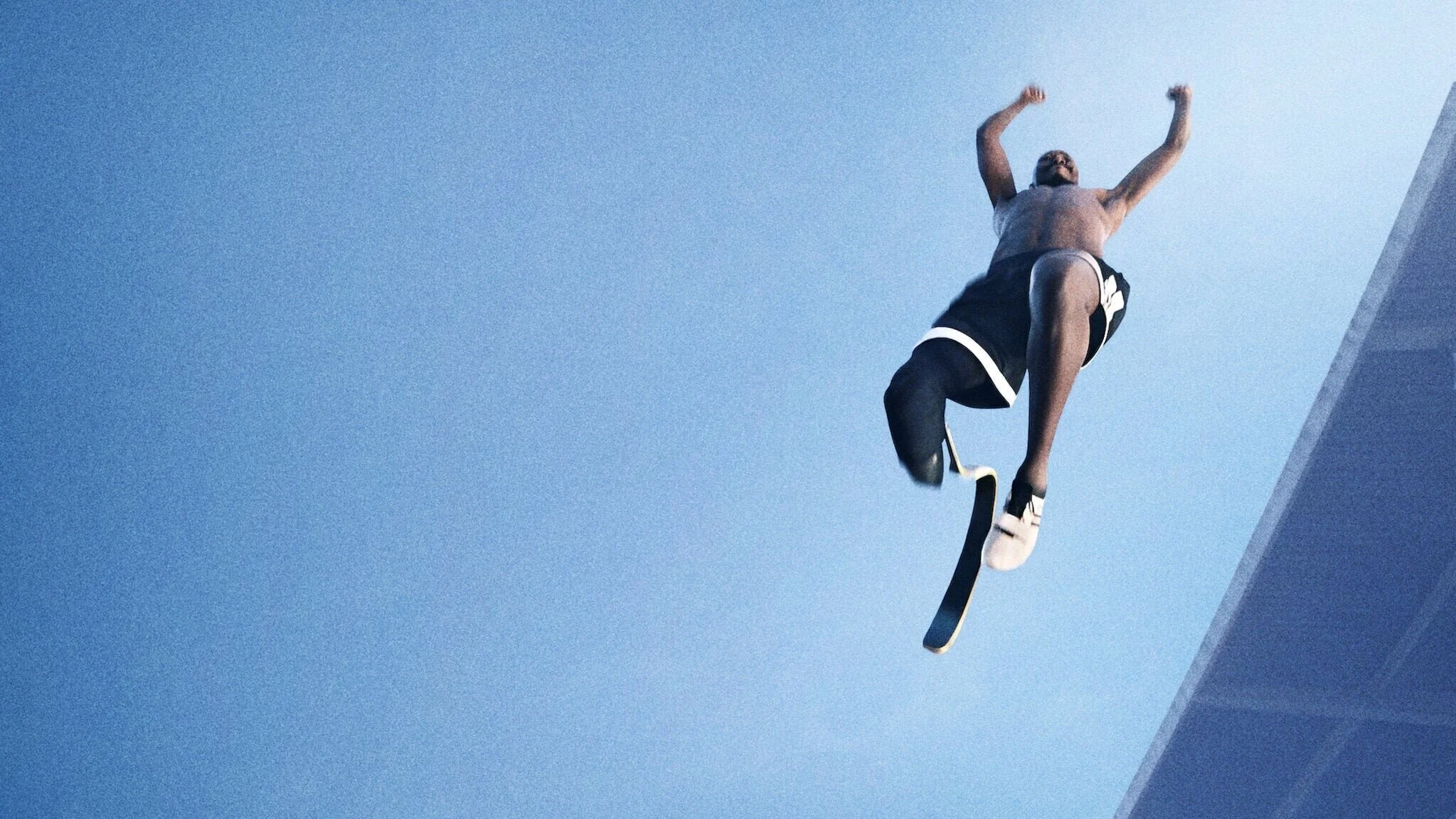Rising Phoenix
A film not to be missed irrespective of whether or not you are interested in sport.
Ultimately Rising Phoenix proves to be slightly less than perfect but it is nevertheless a triumph and one of the major films of 2020. Its subject is the Paralympics and the filmmakers are Ian Bonhôte and Peter Ettedgui. That they are formidable artists was shown in the exceptional quality found in the first of their collaborations, McQueen (2018), and with this second documentary being almost as fine it must be said that the level of their talent is on a par with that of Asif Kapadia.
Their film about Alexander McQueen had a natural shape due to it being a biopic. Finding the right form for Rising Phoenix must have been far more problematic but for the most part the chosen structure works well. Following a generalised introduction in which athletes with disabilities are compared to superheroes and are viewed as people who have found strength through experiencing tragedy, the London games of 2012 provide the initial focus. The 2016 Paralympics which almost didn't happen will feature in the climactic section of the film but between times and not always in chronological order there is material related to the very first of the games held in Rome in 1960, to Beijing (2008), to Athens (2004) and to Sochi (2014) as well as to the situation in 1980 when a place having been denied alongside the Moscow Olympics the event took place in Arnhem instead.
Fitted into this very adroitly is another history telling the story of the founder of the games Dr. Ludwig Guttmann, a Jewish refugee from the Nazis who worked at Stoke Mandeville hospital and encouraged the idea of involvement in sport as a helpful contribution to the rehabilitation of the disabled (at the outset these were war veterans). His daughter, Eva Loeffler, appears and makes an impressive contribution commenting memorably on how her father came to be an inspiration to so many. Equally personal are the many sequences in which individual athletes discuss their own lives (old childhood footage is included more than once adding to the human impact) and what participation in one or more of the Paralympic games has meant to them.
Putting all these elements together effectively must have been challenging but, while Daniel Pemberton's music score lacks individuality, Bonhôte and Ettedgui and their editor Otto Burnham have found a mix which for almost all of the time, aided by the many wonderful individuals making an appearance, holds the viewer riveted. It is Eva Loeffler who comments on how spectators at the Paralympics feel not that that they are watching disabled people but that they are seeing a great sporting event and Rising Phoenix is at its very best when, however acutely we feel for the athletes in their endeavours, the film captures exactly what she describes. Only in the final scenes given over to the 2016 Paralympics do I feel that the film falters in its balancing act. Having met in the course of the film so many outstanding athletes, one can well see how in theory featuring clips of many of them participating in Rio (some coming out on top, others just missing it) would provide an effective finale. In practice it doesn't quite work: appropriately enough no single athlete becomes the film's star personality and as a consequence of that the Rio footage instead of building to a climax offers a series of scenes, each admittedly effective in itself, which because all of them are on an equal footing lack any sense of shape and thus come too seem rather lengthy.
For me this was a flaw but others may not feel it and it is in any case a small point. Lovers of sport will want to see this film in the same way that other films made over the years featuring the Olympic Games have found a ready audience. This one, however, offers much more than sport for its own sake. It is suggested in the film's introduction that the Paralympics are trying to save the world, a phrase that sounds a bit much. However, in the course of the film we learn how each set of Paralympic games has led to a change in the way that the disabled are regarded by the public, not least in the countries where they have been held. So, while the notion that they are saving the world may be questioned, one can believe that they are changing the world. If the games are doing that, this film will undoubtedly contribute to the same end. Until now the only Olympic film that has been widely recognised as having deeply humane qualities that make it more than a sporting record is Ichikawa's Tokyo Olympiad (1965). That film now has a companion piece in Rising Phoenix.
MANSEL STIMPSON
Featuring Jean-Baptiste Alaize, Bebe Vio, Tatyana McFadden, Jonnie Peacock, Ellie Cole, Matt Stutzman, Ryley Batt, Ntando Mahlangu, Eva Loeffler, Xavi Gonzalez, Sir Philip Craven, Andrew Parsons.
Dir Ian Bonhôte and Peter Ettedgui, Pro John Battsek, Greg Nugent and Tatyana McFadden, Ph Will Pugh, Ed Otto Burnham, Music Daniel Pemberton.
HTYT Films/Misfits Entertainment/Passion Pictures/Ventureland-Netflix.
105 mins. UK. 2020. Rel: 26 August 2020. Cert. 12.


